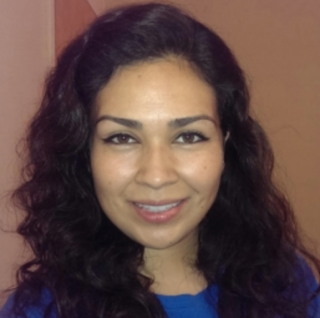
UC Santa Barbara welcomes a new cohort of doctoral students from underrepresented backgrounds.
For as long as she can remember, Lourdes Velazquez’s parents, who emigrated from Mexico to Los Angeles, made education a high priority. Employed in jobs that were both labor intensive and low paying, they taught their children the importance of excelling in school.
Taking their parents’ advice to heart, both Velazquez and her sister pursued advanced degrees. “We are the only two in our family that have pursued careers in STEM,” she said.
Today Velazquez is a first-year doctoral student in biomolecular science and engineering at UC Santa Barbara. She is also among 12 Ph.D. students on campus who are fellows of the National Science Foundation’s Bridge to the Doctorate (BD) program, which supports doctoral students from underrepresented minorities in science, technology, engineering and mathematics (STEM).
The program will provide them with over two years of financial support — courtesy of funding from the university and from the National Science Foundation’s Louis Stokes Alliance for Minority Participation — as well as a host of academic and professional development resources throughout their time here.
“Being a part of BD has been a wonderful experience; I cannot be more grateful,” said Velazquez.
Being a minority in your field can be isolating. “Having a cohort of fellows to exchange experiences and ideas and support each other, even if they’re in different departments, can be helpful just as a reminder that there are others out there who are also pushing forward,” explained Arica Lubin, associate director of the Center for Science and Engineering Partnerships (CSEP), which oversees the BD program at UC Santa Barbara.
Fellow Marcela Areyano echoed Lubin’s sentiment. “Growing up I didn’t know anyone who had pursued STEM degrees or had gone to college in my family. I was the first one,” said Areyano, who was raised in Lompoc. She also studied as an undergrad at UC Santa Barbara, where she joined the student group Los Ingenieros, which promotes Hispanic involvement in STEM fields. “I had the opportunity to meet many Latinx engineers,” she said, “which is part of the reason I decided to continue with my degree when things got tough.”
Areyano transitioned into a doctoral program at UC Santa Barbara, where she studies the material properties of the threads marine mussels use to anchor themselves to surfaces.
As a grad student she’s gone on to serve as an officer for the Santa Barbara chapter of the Society of Hispanic Professional Engineers, and was the founding president for the Society of Advancement of Chicanos/Hispanics and Native Americans (SACNAS) graduate student chapter.
In addition to having research advisors, fellows also are paired with faculty mentors in their fields who provide professional and emotional guidance as they pursue their doctoral degrees.
“The faculty mentor is someone who understands the expectations, the milestones and the culture of the student’s program and department,” said Lubin.
The BD program also partners fellows with peer mentors in their disciplines, older Ph.D. students who can help them navigate the practical realities of a doctoral program. Added to this are many workshops, seminars and discussions aimed at guiding the fellows through their programs and beyond.
“As a minority student jumping straight into a Ph.D. program from my undergraduate work, it has been helpful to have a mentorship and counseling network specifically designed for my academic needs,” said Xochitl Clare, a marine biology student and a first-generation Hispanic African American.
Growing up in a low-income Hispanic community in Glendale, it was tough for Clare to get to the beach, so her mother fostered her passion for the ocean with brightly illustrated books. “I was hooked,” she recalled. Now Clare explores the effects of climate change on small-scale fishery species off the Santa Barbara coast.
BD fellows like Clare also join UC Santa Barbara’s Graduate Scholars Program (GSP), a mentorship initiative designed to support underrepresented grad students across all disciplines. Lubin and BD Director Javier Read de Alanizhave worked alongside the Graduate Division, which oversees GSP, to mesh the two programs, thereby giving the university an opportunity to try different approaches to supporting underrepresented grad students.
“Building a community at UCSB that celebrates diversity and recognizes the many exceptional scientists from underrepresented backgrounds that make our graduate student program vibrant is one objective of the BD program,” Read de Alaniz said.
The Bridge to the Doctorate is among the programs at UC Santa Barbara piloting the introduction of individualized development plans. These dynamic documents provide a road map for goal-setting, self-assessment and mentor discussions. Given the plans’ increasing adoption by many Ph.D. training programs, efforts are underway to incorporate it into the graduate training here at UC Santa Barbara.
Between the resources, program leaders and sense of comradery, the BD program provides a full experience for the students. “Being a BD fellow is not simply about receiving funds,” said Velazquez. “It’s about being part of a family that nurtures your journey through graduate school.”
Contact Info:
Harrison Tasoff
(805) 893-7220
harrisontasoff@ucsb.edu